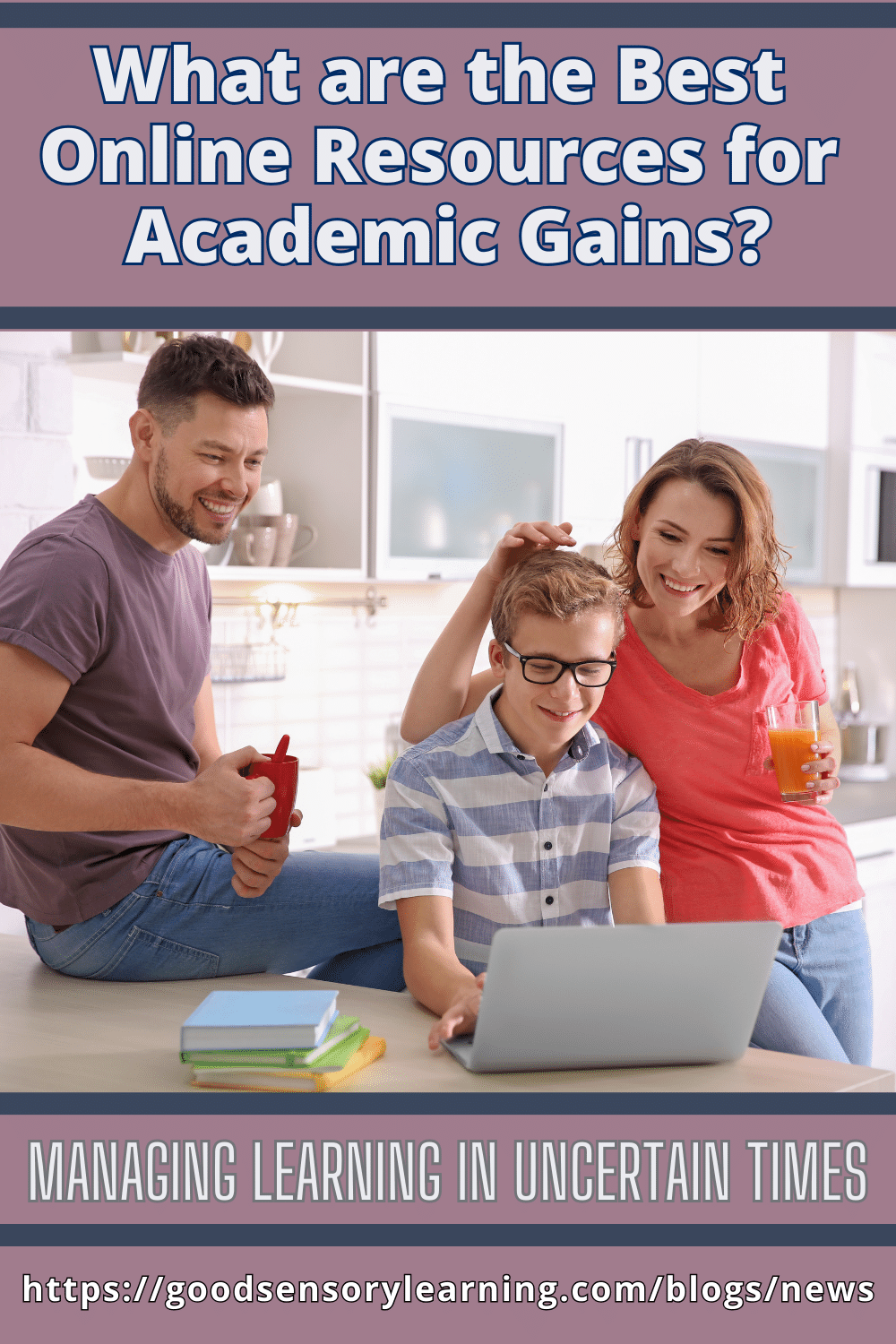What are the Best Online Resources for Academic Gains?
Posted by Erica Warren on
Supporting students' academic growth should be an ongoing priority, not just at the start of the school year. With the disruptions caused by the pandemic, many students are still working to recover lost learning and fill in gaps. Even with regular classroom teaching, we need to find ways to address these setbacks and help each child reach their potential. Supplementing in-person instruction with engaging online resources can provide meaningful skill practice and reinforcement. In this blog post, I'll recommend some of the best websites and apps across core subjects for promoting academic gains during the school year. 
Whether it's interactive math games, reading comprehension activities, or science simulations, quality digital tools allow students to learn at their own pace. I'll provide an overview of top-rated resources for elementary through high school, detailing their key features and how parents and teachers can integrate them into daily life for added learning support. Let's use online tools to make skill-building fun and productive all year long.
Supporting Learning All Year Long
Assessments for Learning Differences
If you suspect your child may have an undiagnosed learning difficulty, consider screening for dyslexia, executive functioning problems and discover their best ways of processing. Identifying needs is the first step toward proper support.
Reading:
Reading daily is one of the best ways to maintain and grow basic language skills. Spelling, vocabulary, grammar, comprehension (textual and subtextual) are skills that weaken when not practiced.
- If you have a reluctant reader, try pairing audiobooks with the print (or digital) version of the book. Listening to the audiobook while simultaneously following the text in a paper or digital version helps support and develop decoding and increase tracking speed, while maintaining one's place in the story.
- If you’re planning a road trip, consider selecting an audiobook for the entire family to listen to. Turn it into a game by asking your kids to visualize the story in their mind as they’re listening and (important!) compare imagined imagery.
- Audible (Amazon) has a great collection, but if you don’t have a subscription, put your tax dollars to use and utilize the huge catalog of downloadable materials provided free through your public library. Simply borrow both versions (print or digital print) as well as the e-audio. Download them, and you’re good to go.
- If your child has a print-based disability, with help from a professional, you can obtain a subscription to Bookshare or Learning Ally.
- If your kids don’t know what to read next, go to your local library's website and use the databases NovelList Plus for K-8 or What Should I Read Next. Brightly and Reading Rockets also have great suggestions.
Math:
Reinforce classroom learning with targeted practice.
- For hands-on math practice, have kids help with cooking, budgets, estimating distance and gas usage on trips, or totaling up grocery bills. Make it a fun competition!
- If they are struggling with basic math consider Memorable Math or Multisensory Multiplication
- Try math games like Monopoly, Rack-O, Prime Climb, Piggy Banking. Also consider websites like IXL and Khan Academy and Prodigy
Science:
Children can spend hours outside discovering nature discovering biomes, microbiomes, learning about weather patterns, or the stars overhead. For a few fun science shows, check out:
- Consider Bozeman Science amazing science instruction.
- Try Mark Rober’s super fun YouTube channel
- Look at It’s Okay to Be Smart and check out the engaging videos on the channel.
- What about Minute Physics fun short lessons that integrate drawings.
What Are Some Resources and Suggestions for Talking about Racism and Racial Equality?
We’re living through a unique period of history, as evidenced by the ongoing public discussions around racism. The conversations about this issue may not be easy, and some kids may not know a lot about how our country has gotten to this point. For books to help you and your kids put it all in perspective consider:
- The New York Times collected recommendations from teachers and librarians
- Multnomah County Library has gathered a community-curated list for more mature readers.
- To help young children begin to understand what racism is and how it affects people, consider sharing: Sesame Street Racism Town Hall.
- For older kids, think about showing them: Privilege/Class/Social Inequalities Explained in a $100 Race
- Anti-Racist Resources - an open-sourced curriculum of resources - videos, books, podcasts, and actionable ideas.
I hope that these links and resources offer some helpful suggestions.
Cheers, Dr. Erica Warren
Dr. Erica Warren is the author, illustrator, and publisher of multisensory educational materials at Good Sensory Learning. She is also the director of Learning to Learn and Learning Specialist Courses.
- Blog: https://goodsensorylearning.com/blogs/news
- YouTube Channel: https://www.youtube.com/user/warrenerica1
- GSL Blog: https://goodsensorylearning.com/blogs/news
- Stores: www.GoodSensoryLearning.com/
- Courses: http://www.learningspecialistcourses.com/
- Newsletter Sign-up: https://app.convertkit.com/landing_pages/694000


